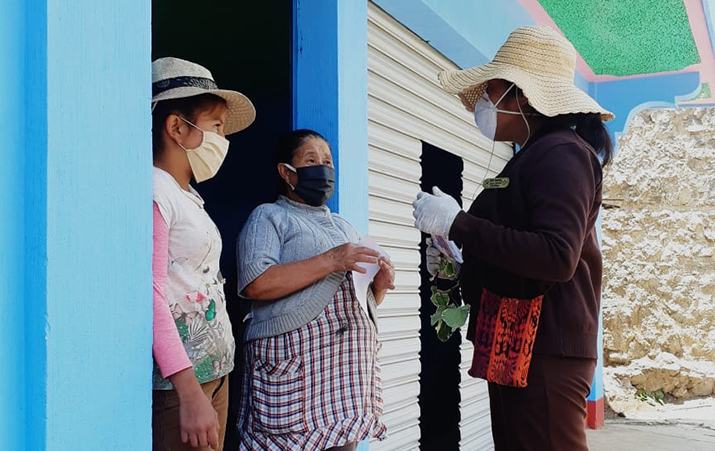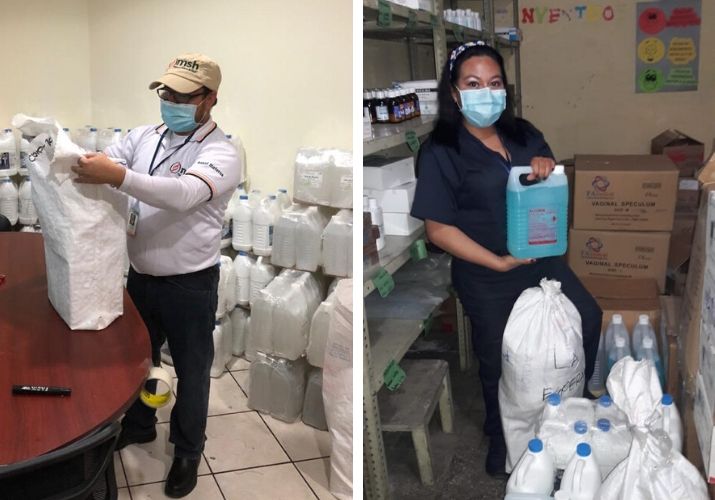Responding to an Epidemic while Maintaining Antenatal Care in Guatemala
Responding to an Epidemic while Maintaining Antenatal Care in Guatemala

Guatemala, like many parts of the world, is on lockdown, with curfews put in place by the Guatemalan government in response to the Coronavirus pandemic. Gatherings of any size are prohibited and these restrictions have affected MSH’s Strengthening Antenatal Care Project in the department of Quetzaltenango, which brings together pregnant Mayan women for group antenatal care (ANC) sessions.
As of April 15, 2020, Guatemala has recorded 196 cases of COVID-19, including 5 deaths and 19 recovered patients. Understanding the gravity of the pandemic and the project’s inability to host group sessions, the funder, Margaret A. Cargill Philanthropies, authorized a short-term reprogramming of project funds to support the Ministry of Public Health and Social Assistance (MSPAS) to find innovative ways to maintain essential ANC services, educate health care workers, and support community participation in the COVID-19 response. MSH’s activities include the procurement of essential personal protective equipment (PPE). When the situation normalizes, the funds will return to supporting pregnancy group sessions.

Leveraging the group ANC model and network of established relationships, project staff are reaching out to pregnant women and community leaders with key messages on both maintaining a healthy pregnancy and COVID-19. Project staff are asking comadrona (traditional birth attendant) leaders to clarify questions being raised in the community, promote proper hygiene, and encourage social distancing. Staff are encouraging comadronas to reach out to religious and other community leaders to promote these same messages. Guidance is also being provided to comadronas on how to work with local authorities, including carrying their government-issued comadrona identity card, so that they are able to safely attend deliveries even during overnight curfew hours without risk of arrest.
Partner staff are also reaching out to individual pregnant women in local languages to provide social-emotion support services, share information on maintaining a healthy pregnancy, follow up on prenatal care, help triage women needing referrals to clinics, and clarify misinformation and share key public health messages on COVID-19.
The project is developing a four-module course that will be available on a virtual platform for health care providers to train them on preventing and responding to COVID-19. The modules will cover the importance of essential services during an epidemic, the epidemiology and pathology of COVID-19, infection protection and control, interacting with and referring positive COVID-19 patients, and local response systems.

MSPAS did not have available funds to quickly purchase PPE for health providers. Within a week, the project procured and donated 2,800 masks, close to 10,000 gloves, 336 gallons of bleach alcohol, hand sanitizer, protective glasses, caps, soap, no-contact thermometers, and sanitary trash cans to MSPAS. These materials will support 95 secondary and tertiary health facilities in Quetzaltenango, including a temporary hospital built in preparation for large numbers of COVID-19 cases.
“We are grateful for our donor who was flexible and responsive to the needs of our community, allowing us to quickly support these efforts,” says Project Director Felipe Lopez. He adds that “MSH is proud to have a stellar team in Quetzaltenango that responded so quickly to an acute need in our project’s health facilities. We are honored to be able to support the frontline health workers that we have been working with for the past nine months.”